Mother Crushers
Rock Climbing While Pregnant and Post-Babies
A lot of folks assume that rock climbing and pregnancy go together as well as ants and a picnic. With two pregnancies under my belt, and having climbed throughout both, I can honestly say that climbing can be a healthy and enjoyable prenatal activity. If rock climbing is an activity that you engaged in on a regular basis before becoming pregnant, it’s an activity that can be acceptable to continue for most women.
(Disclaimer: it’s ALWAYS a good idea to clear it with your OB/midwife first.)
There are a few extra precautions that many expectant moms choose to take at certain points in their pregnancy. For example, with both of my pregnancies, I stopped bouldering and leading early on and switched to a full body harness around 15 weeks.
Rock Climbing While Pregnant and Post-Babies
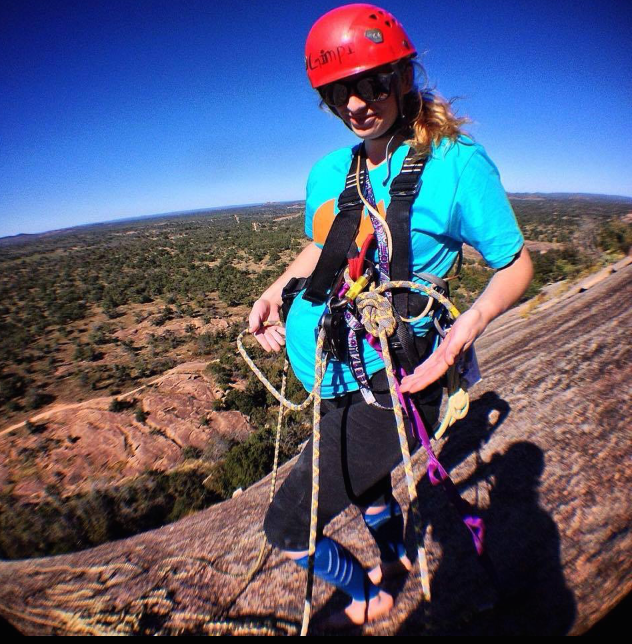
SYMPTOM: Increased Tiredness. This one may seem obvious because it literally affects EVERY pregnant woman I’ve ever met, but don’t underestimate the impact it can have! Tiredness is ironically at it’s worst during the first
HOW TO HANDLE: Rest when you need to rest. Now is not the time to push for one more climb or to finish your 4X4. Pace yourself, drink plenty of water, and listen to your body.
SYMPTOM: Nausea. This will affect some women more than others and can vary from pregnancy to pregnancy in frequency and intensity.
HOW TO HANDLE: My nausea seemed to improve with activity and food, so a short session at the climbing gym was a great remedy. I learned the hard way that activity on an empty stomach did not go so well, so keeping a stash of snacks (or complete meal) in my gym bag was essential.
SYMPTOM: Out of Breath. Without
HOW TO HANDLE: Take it slow when climbing, maybe give two catches per one climb. When your heart rate starts to soar and you can’t carry on a conversation, take a break. Be realistic about the amount of training you set for yourself.
SYMPTOM: Swollen Feet. Swollen feet for a non-climber makes
HOW TO HANDLE: You know that very first pair of climbing shoes you bought, way back when you didn’t know how they were supposed to fit and got them two sizes too big? Time to break those out full time – trust me it’ll make a big difference!
SYMPTOM: Loose Joints. Relaxin is a hormone designed to loosen up pelvic joints to prepare for all the expanding they’ll need to do during birth. Unfortunately, this “loosening” is not limited to just the ligaments involved in childbirth, which makes a pregnant woman’s entire body more vulnerable to strains, sprains, and instability issues.
HOW TO HANDLE: Avoid
SYMPTOM: Diastasis Recti. This condition occurs when the connective tissue between the Rectus Abdominis (6-pack muscles) thins and separates, creating a gap in the midline of the body.
HOW TO HANDLE: DO NOT do any sort of abdominal exercises that flex your upper or lower body up towards your midline (i.e. crunches or hanging leg lifts), or forceful twisting on the obliques after the first trimester, and make sure any separation has healed before attempting ab work post-partum.
SYMPTOM: Lack of motivation. It’s hard to stay psyched to do something that you get measurably worse at it with every passing week.
HOW TO HANDLE: If you stay focused on the numbers, you’re going to be disappointed. It’s time for a shift in perspective – pregnancy is not a time for sending at your limit, it’s a time to enjoy the freedom that comes with moving on the wall.
SYMPTOM: “I can’t do _________ anymore!” Depending on the level you were climbing at before you got pregnant, most women find themselves saying this to their partner at some point. The bigger my belly got, the harder it was to do mantles or certain high foot moves, especially since I couldn’t see my feet!
HOW TO HANDLE: Again, shift your perspective – staying active is important, but sending that 5.11 project in the gym is not. Laugh it off and move on. Pregnancy is a unique and miraculous journey, and despite some unpleasantries, it’s always worth it in the end.
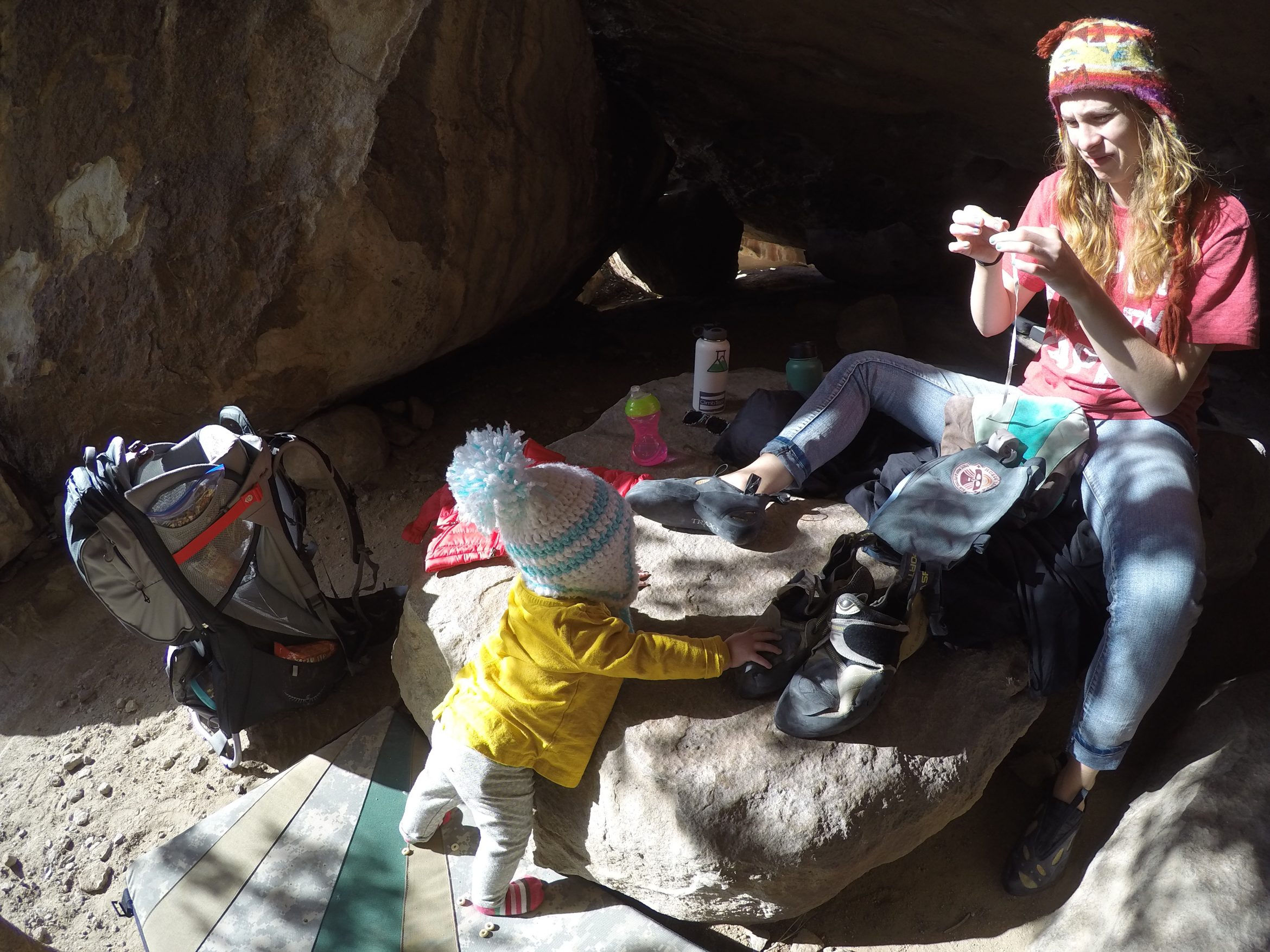
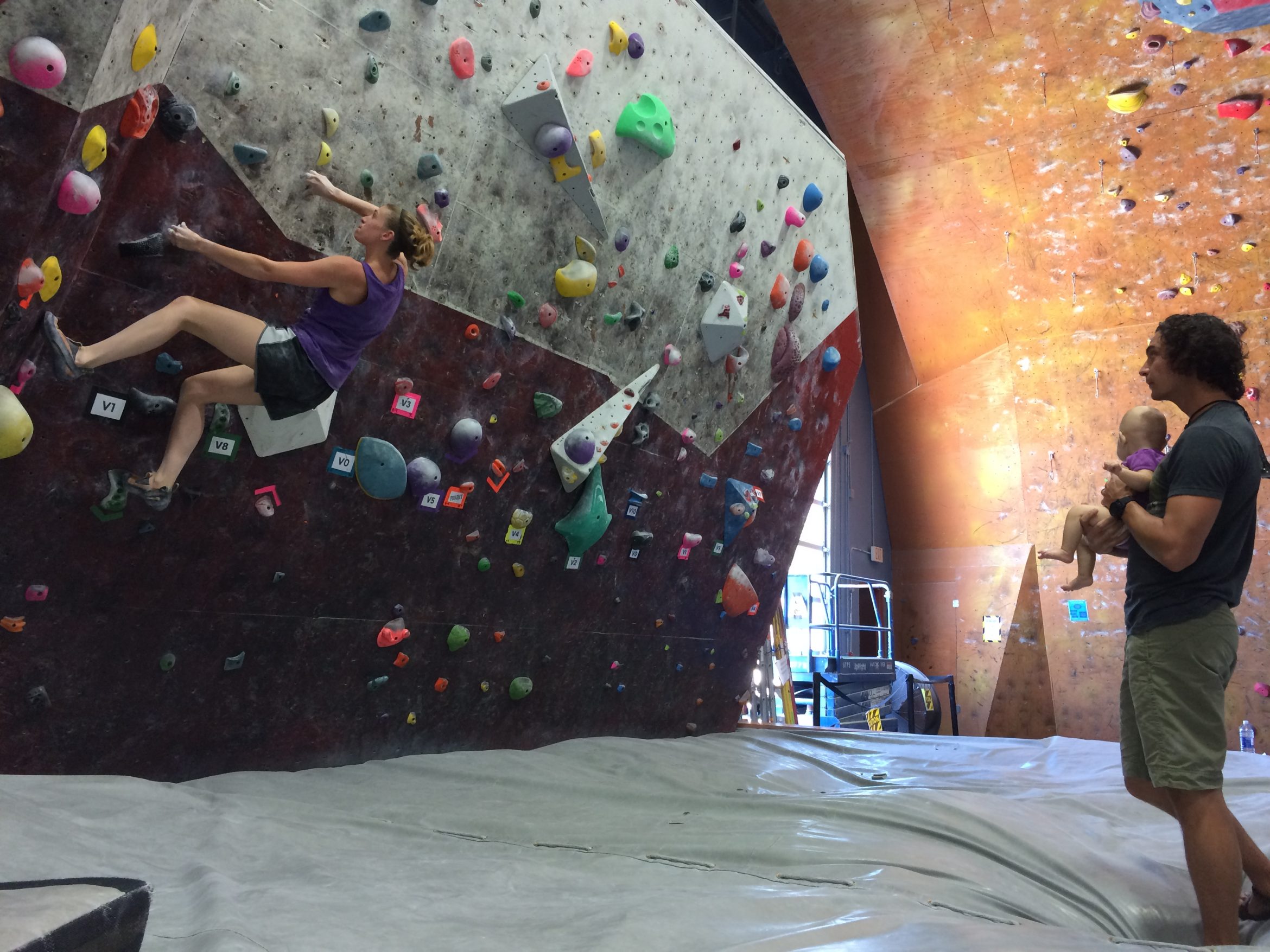
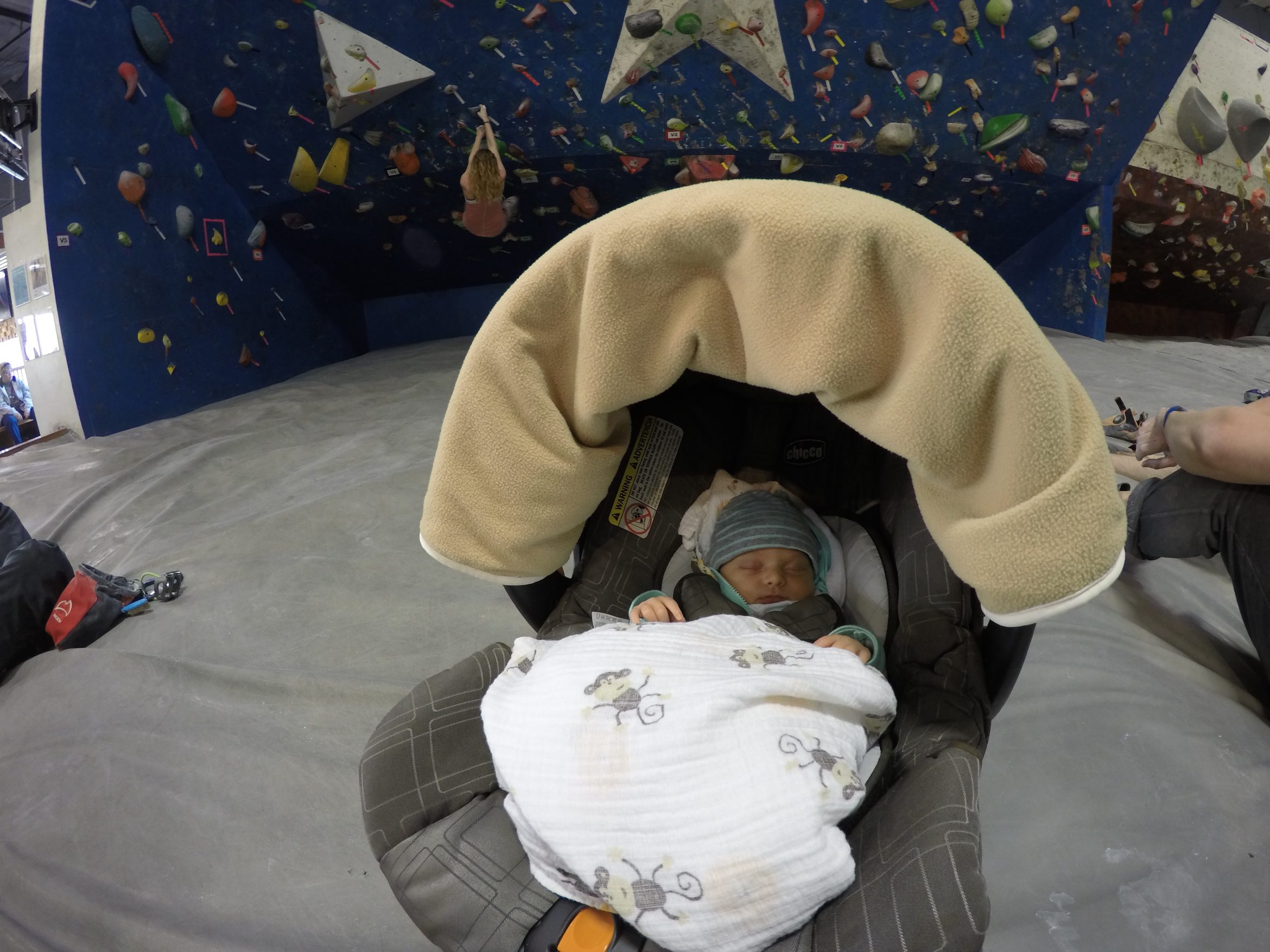
Getting back into the swing of climbing after having a baby
Keep Your Core in Check
Diastasis Recti is the separation of your ab muscles during pregnancy, I optimistically assumed this wouldn’t affect me because I thought my core was in great shape, ha! After giving birth to my second baby there was a squishy 3-4 finger gap between the muscles up my belly. Take your time before jumping back to your full workout routine. I learned the hard way to wait until fully healed before trying any core workouts.
Pelvic Floor Exercises
Seriously, do them. Do them when you’re feeding your baby or when you’re in the shower or walking to the shops, it doesn’t matter
Home Exercises
I was lucky to live just a short drive from the climbing gym, and even then, it was hard to get motivated to pack up
Little and Often
Being motivated to dedicate 4 hours 4x a week just isn’t going to happen. I optimistically (this is a theme) wrote myself a training plan at 3 weeks postpartum with my first, but babies don’t stick to training plans and neither do
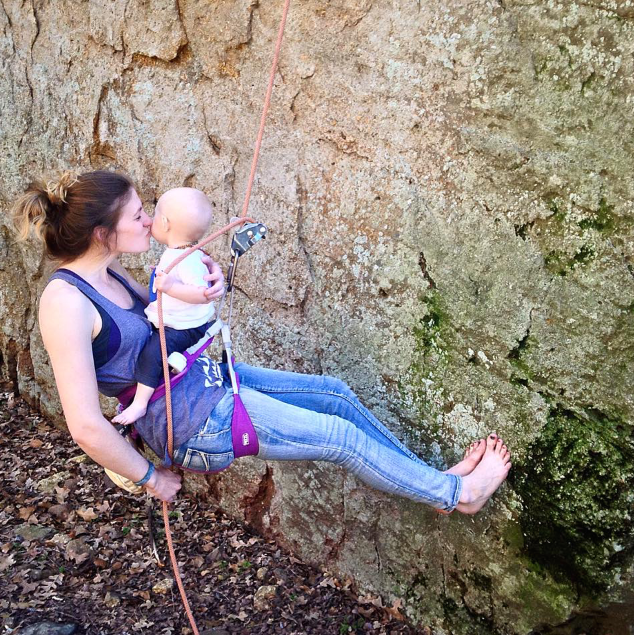
Let Go of Expectations
This works in both ways. My first session back I expected to feel like I had taken a giant weight vest off…not the case! I was shocked to be struggling on the same things I struggled on while 30 weeks pregnant. On the other hand, I’m still amazed at my body’s ability to recover and improve so quickly. I would never have expected to climb at around the same grade pre-pregnancy in a
Look After Your Body
On top of growing a child for 9 months, giving birth is a traumatic experience for your body, so it definitely deserves to be treated nicely postpartum. Treat yourself to a sports massage to relieve your muscles, or if you’re on a budget like me, take some time twice a week to roll a tennis ball around on your back against the wall or on the floor. Look after your body, treat it well, it’s done amazing things
